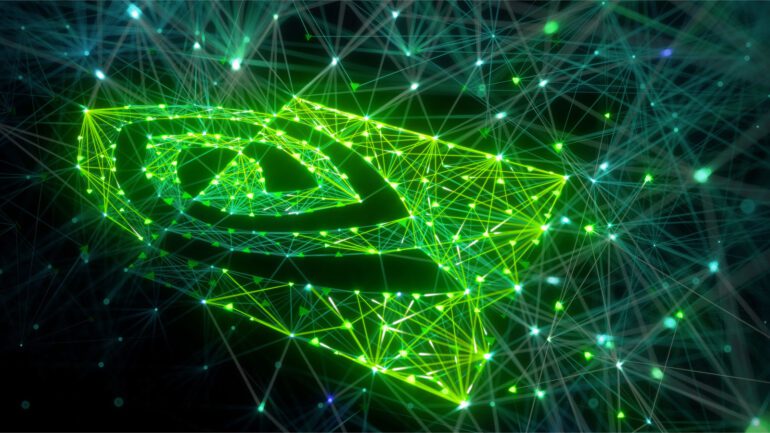TL;DR:
- Chatbots like ChatGPT and Google Bard have faced credibility issues due to providing irrelevant or inaccurate answers, known as “hallucinations.”
- Nvidia has introduced NeMo Guardrails, an open-source software that helps chatbots stay on track and provide accurate and appropriate responses.
- NeMo Guardrails allows developers to integrate rules-based systems into chatbots, ensuring their responses are accurate, on topic, and secure.
- Chatbots’ training on publicly available data can lead to biases, opinions, and unsubstantiated conclusions, causing illogical or offensive responses.
- Nvidia’s solution aims to mitigate these problems and contribute to the broader adoption of AI, aligning with the company’s vested interest in the future of AI.
- The potential of AI development is enormous, with projections suggesting it could generate $14 trillion in additional revenue and $90 trillion in enterprise value.
- Successful AI adoption depends on users receiving useful, accurate, and truthful responses from AI models.
- Nvidia’s technology, along with advancements in AI, has the potential to ensure reliable and credible AI responses, paving the way for future innovation.
Main AI News:
Artificial intelligence (AI) has taken center stage in 2023, and the launch of ChatGPT has revolutionized the landscape. This cutting-edge AI chatbot quickly amassed an astonishing 100 million monthly active users, making it the fastest-adopted consumer app in history. The immense success caught the attention of tech giant Microsoft, which invested a staggering $13 billion in OpenAI, the creator of ChatGPT. This move triggered a frenzy among companies with AI expertise, each racing to unveil their own next-generation chatbots.
However, despite these remarkable advancements, a significant drawback has emerged. Extensive testing of ChatGPT and Google Bard, developed by Alphabet, has exposed a fundamental flaw in these systems. The New York Times reported that these chatbots occasionally provided answers that were “irrelevant, nonsensical, or factually incorrect.” Termed “hallucinations,” this critical issue raised doubts about the credibility of these groundbreaking AI developments.
Fortunately, Nvidia, a prominent player in the AI realm, has devised an ingenious solution to address this challenge. Jonathan Cohen, Nvidia’s vice president for applied research, unveiled the company’s breakthrough creation in a recent blog post. Known as NeMo Guardrails, this newly released open-source software acts as a safeguard, preventing chatbots from straying into the realm of fantasy or disseminating outright falsehoods. NeMo Guardrails empowers developers to integrate rules-based systems into chatbots, ensuring their responses remain accurate, appropriate, on-topic, and secure. Cohen emphasized that this software can effectively “detect and mitigate hallucinations.”
By employing NeMo Guardrails, developers can craft scripts that dictate specific responses based on given topics. This eliminates the need to rely solely on the language model’s interpretation or adherence to instructions. The execution logic of the guardrail system is hard-coded, providing precise control over the chatbot’s behavior.
The root cause of this predicament lies in how these systems are trained. Chatbots serve as intermediaries between users and large-language models (LLMs) that rely on vast amounts of publicly available data sourced from the internet. However, not all the data scoured during training is factually accurate. Biases, opinions, and unfounded conclusions often find their way into the training data, leading to chatbot responses that may deviate significantly from logical or appropriate outcomes and, at times, even become offensive or unsettling.
Nvidia’s innovative solution holds immense promise in eliminating these issues and propelling AI into a future of credibility and reliability. With a deep-rooted interest in the AI landscape, Nvidia stands to benefit substantially from wider AI adoption. As a leading provider of semiconductors for cloud computing, data centers, and AI model training, the company estimates a $150 billion opportunity in AI enterprise software and an additional $300 million from chips and systems. Nvidia envisions a total addressable market (TAM) of around $1 trillion, highlighting the significant stakes involved. However, the implications extend far beyond Nvidia alone.
The forthcoming phase of AI development carries staggering potential, as emphasized by Cathie Wood, CEO of Ark Investment Management. The firm’s Big Ideas 2023 report indicates that if software developers can realize just 10% of the value generated by their AI creations, the advancements in AI could generate an astonishing $14 trillion in additional revenue and $90 trillion in enterprise value.
While AI holds the key to the next wave of high-tech breakthroughs, widespread adoption of this technology hinges on users’ ability to receive useful, accurate, and trustworthy responses from AI models. Nvidia’s pioneering technology is poised to ensure future AI advancements remain on a trajectory of success, instilling confidence in users and ushering in a new era of AI-enabled innovation.
Conlcusion:
The introduction of Nvidia’s NeMo Guardrails and the ongoing advancements in AI chatbot technologies hold significant implications for the market. By addressing the credibility challenges faced by chatbots, these developments instill trust and reliability in AI systems, making them more viable for widespread adoption. This opens up vast opportunities for businesses operating in the AI enterprise software and semiconductor sectors.
With the potential for AI to generate trillions of dollars in additional revenue and enterprise value, companies that leverage these advancements stand to benefit from the expanding market and the transformative impact of AI on various industries. Embracing these innovations and ensuring accurate, on-topic, and secure responses from AI models will be crucial in unlocking the full potential of AI and driving future growth in the market.

